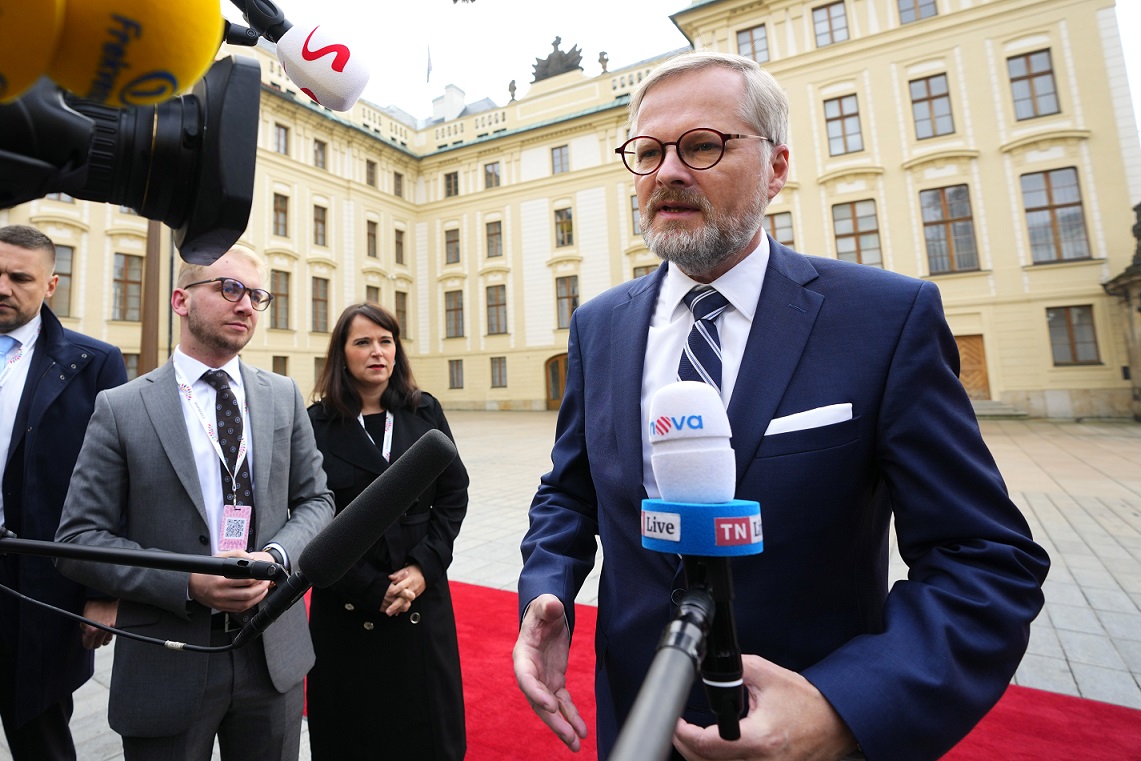Czech Prime Minister Petr Fiala promised on the Napřímo program on TV Nova that his government will not raise taxes on households, with the exception of the “war tax” which he claims is a special measure that does not apply to all sectors and is temporary.
“We have to make the state leaner in the future. Every bureaucratic matter costs a lot of money,” Fiala said.
The Czech prime minister said that he pays 2,800 korunas (€114) in advance for electricity, as well as over 10,000 korunas (€407) for gas. At the same time, the prime minister admitted that gas deposits for his family have increased several times.
“Our family tries to save money. The cost-saving tariff is also starting to show. For gas, capping will start to work. Just because we save doesn’t mean we can’t afford it. We do it for the sake of businesses and neighbors, for everyone’s sake,” the prime minister said on the program.
According to Fiala, it is important that the price of electricity and gas does not exceed the price cap. The price of power electricity is limited to 6 korunas (€0.24), including VAT, and gas to the price of 3 korunas (€0.12), including tax for the added hour per kilowatt-hour. For households, this will mean a price for electricity of up to 9 korunas (€ 0.36) per kWh.
Today, other countries are looking at us
“Citizens of the Czech Republic are very intelligent people,” Fiala said. “They see what is happening. If someone says we can close ourselves off as an energy island, they are lying. Today, other countries are looking at us, at how our government is doing things,” he added.
According to him, the government can guarantee citizens the price of electricity and gas for the next year.
“The effort to separate the price of electricity and gas is aimed at this,” he explained, although he warned that no one has any idea where the prices could move to in the future.
“Capping brings costs to the state budget,” he said. According to him, however, it is money well spent and will predominantly be paid for through a windfall tax on energy companies’ profits.





